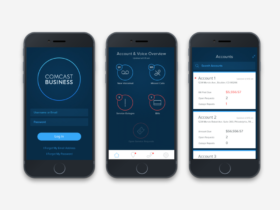The technological landscape of web development is witnessing a significant shift: the transition from traditional Active Server Pages (ASP) to advanced Single Page Application (SPA) technologies. With over a decade of experience in PRPC and Java Development, a certified Pega PRPC Lead System Architect Praveen Kumar Tamanna, is on the forefront of bringing this transition about. He shares how he does it, and also shares profound insights into this transition.
This article encapsulates the journey from ASP to SPA, highlighting the myriad of benefits, potential challenges, and strategic approaches inherent in this technological evolution.
Understanding the Legacy: The ASP Framework
ASP, developed by Microsoft, has been a stalwart in web development for years. These server-side scripts have powered countless web applications but are now facing obsolescence due to evolving user demands and technological advancements. The shift from these traditional frameworks to SPA marks a critical evolution in meeting modern digital requirements.
The Cost Implication of Legacy Systems
Maintaining these aging systems can be financially burdensome, consuming a significant portion of IT budgets. This financial strain underscores the need for modernization, leveraging the transformative power of custom enterprise applications driven by microservices architecture.
Risks and Limitations of Legacy Systems
Legacy systems, once the bedrock of many organizations, now pose substantial security risks and operational limitations. These outdated infrastructures lack the flexibility and scalability essential for today’s rapidly evolving market demands. Surveys by Accenture and Deloitte highlight a growing consensus among executives: the urgent need to replace core legacy systems is critical, with 67% of executives in favor of such a move. Deloitte’s findings also indicate that 80% of businesses migrating from legacy systems to modern cloud solutions are better prepared for future challenges
The Rise of Single Page Applications (SPA)
SPA technology, which leverages the capabilities of modern JavaScript frameworks such as Angular, React, and Vue.js, represents a significant paradigm shift. These applications deliver a dynamic and interactive user experience by loading a single HTML page and dynamically updating it as users engage with the app. Praveen Kumar worked on the influential NRCS Registry project that is built on the Constellation framework, utilizing the Single Page Application architecture to enhance user experience.
The Expert’s Viewpoint
Having mastered the intricacies of PRPC-based application development and Java, coupled with a profound understanding of PEGA PRPC V8.X, Praveen is well-positioned to guide this transition. This expertise is crucial in navigating the complex migration process and leveraging SPA’s full potential for contemporary web solutions.
Benefits of Embracing SPA Technologies
Enhanced User Experience: SPAs offer a seamless and interactive user experience, closely resembling native applications.
Reduced Server Load: By handling data manipulation and UI rendering in the browser, SPAs significantly reduce server load.
Optimized Performance: SPAs provide faster transitions, making web applications appear more responsive and fluid.
Increased ROI: Modernizing legacy systems to custom enterprise applications offers a multitude of business benefits. A study by McKinsey reveals that organizations focusing on optimizing customer experiences can achieve growth between 5 to 10 percent, with cost reductions ranging from 15 to 25 percent. Enhanced cybersecurity, operational efficiency, and optimized customer experiences are among the key advantages of modernizing IT assets.
The Legacy System Modernization Process
Modernizing legacy systems is a multifaceted process involving several key steps:
Assessment and Planning: This involves a thorough analysis of the existing ASP applications, considering factors like business value, technical debt, and user impact.
Defining the Modernization Strategy: Based on the assessment, a strategy is formulated, which could include rehosting, refactoring, rearchitecting, or rebuilding.
Implementation: This stage involves the actual coding and development work, where ASP functionalities are redeveloped or integrated into the SPA framework.
Testing and Deployment: Rigorous testing ensures the new SPA system aligns with business requirements and user needs before final deployment.
Tackling the Challenges of Transition
Despite the benefits, the shift from ASP to SPA is not without challenges: Migration Complexity: The process of moving from a server-centric to a client-centric model in SPAs can be intricate.
Skills and Training: The need for proficiency in modern JavaScript frameworks necessitates upskilling and possibly hiring new talent.
Integrating with Legacy Systems: Ensuring compatibility and seamless integration between new SPAs and old systems is a common challenge.
Best Practices for a Smooth Transition
Stakeholder Engagement: Continuous involvement of stakeholders throughout the modernization process ensures alignment with business objectives.
Incremental Approach: Adopting an iterative, agile methodology can help manage risks and allow for flexible adaptation to user feedback and evolving requirements.
Focus on User Experience: Given that SPAs significantly impact user interaction, prioritizing user experience in design and development is crucial.
Read More Blogs!
The Future Outlook
As businesses increasingly recognize the need for modern, efficient, and user-friendly web applications, the shift from ASP to SPA is not just a trend but a strategic necessity. With the guidance of seasoned experts like Praveen Kumar, organizations can navigate this complex transition effectively.
The journey from legacy ASP to modern SPA technologies embodies more than just a technological upgrade; it represents a strategic realignment towards efficiency, scalability, and enhanced user experience. This evolution, guided by deep expertise and strategic foresight, is essential for businesses to remain competitive and responsive in today’s digital arena.












Leave a Reply